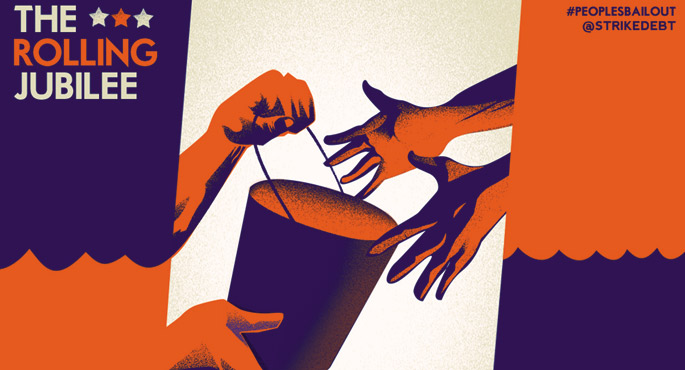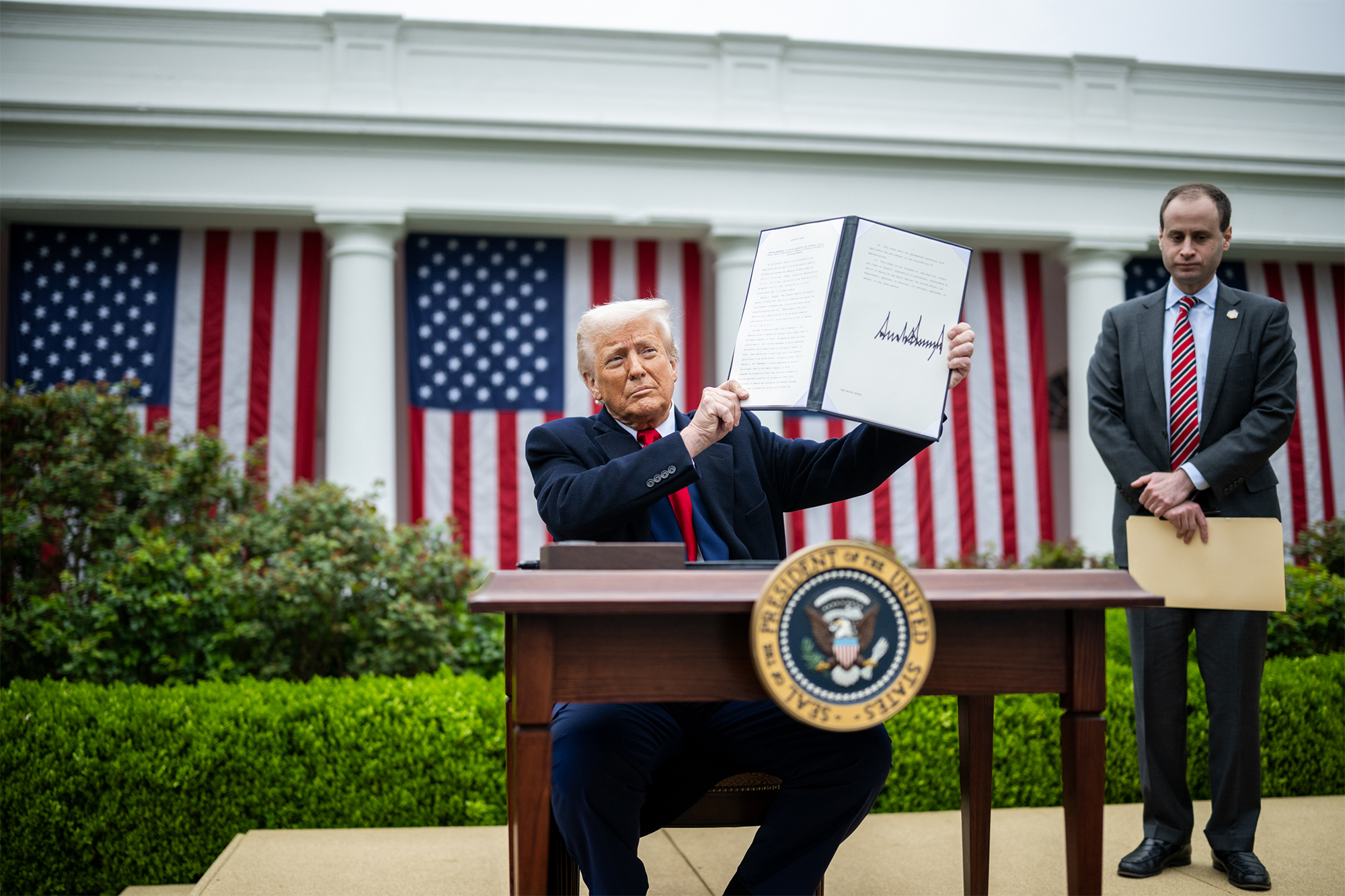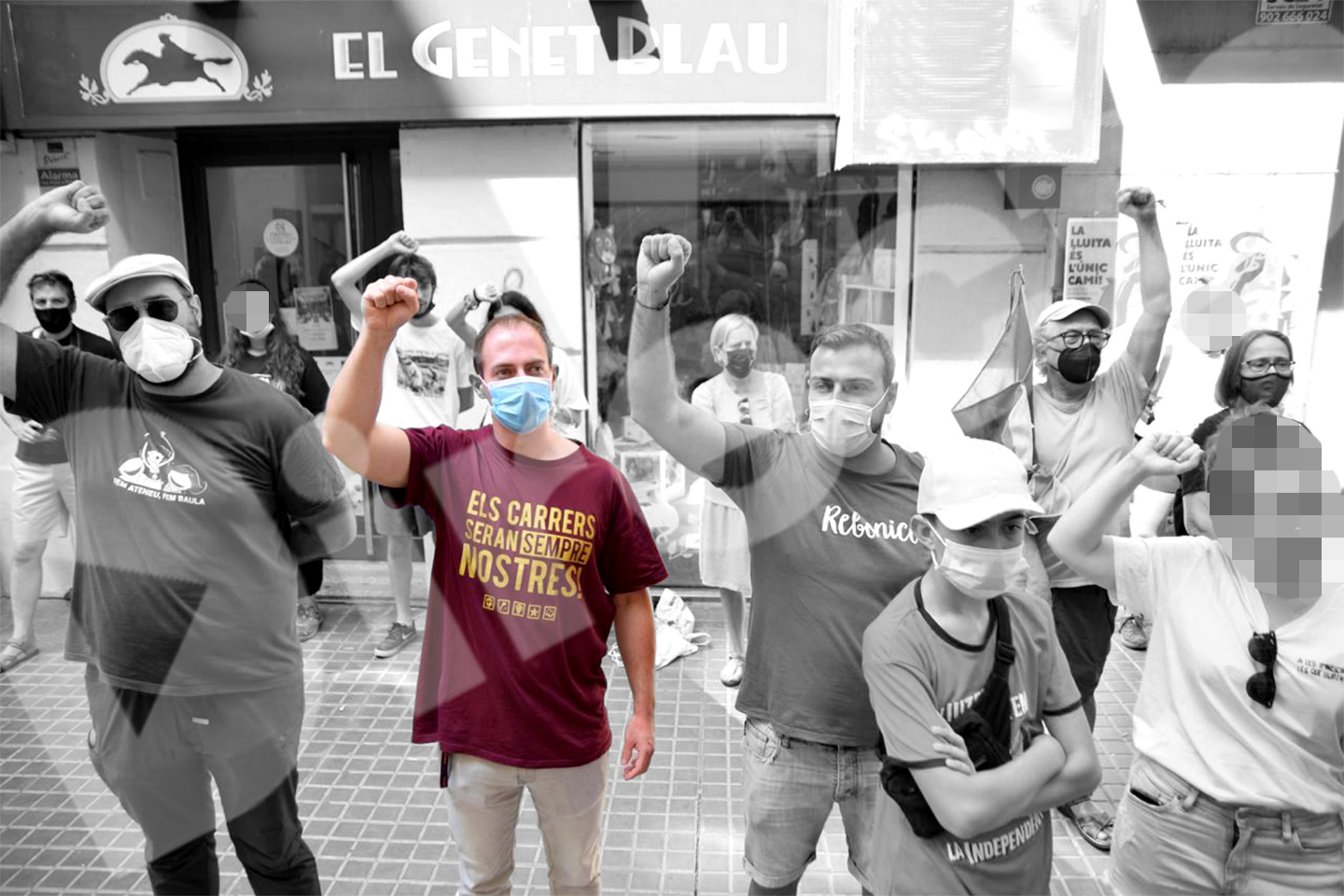Strike debt: nullifying oppression by buying people's debts from banks
- Who has said that the Occupy Wall Street movement has in practice yielded little results? In the case of millions of people who are drowned in debt, it has launched mechanisms of repression not only of indebtedness, but it has demonstrated with the Rolling Jubilee campaign that it is possible to forgive debts that cannot be paid to people quickly and easily.

A total of 2,693 U.S. houses received a curious letter in fall 2013. It was like this. “From now on you are not obligated to pay your X account, either the creditor you had at the beginning, or the invoice collectors, or anyone else.” It was not to have fun at the end of what was in distress, it was the truth, but to tell those who received the letter that, thanks to the fundraising carried out with the Rolling Jubilee campaign, their deferred debts had been purchased and forgiven by another.
Rolling Jubilee would be in Euskera the ‘itinerant jubilee’ or ‘forgiveness going on’. Jubilee is declared by the Catholic Church at regular intervals to forgive all sin to believers. In the field of debts, general forgiveness, giant liquidation. The anthropologist David Graeber, leader of the Occupy Wall Street movement, recently recruited by a Larrun, has explained throughout history that his bosses and bosses pardoned their debts to the indebted because it was the condition of survival without the system breaking.
Throughout history -- and also today, at least some. Recently, at the outbreak of the 2008 crisis, huge holes have been forgiven, liquidated and matched up to large debtors, that is to say powerful financial institutions. On the contrary, the novelty, says Graeber, is that for the first time the system has decided not to forgive small debtors, because you may be sure that this time there will not be an uncontrollable social explosion.
In 2011, Occupy mobilized the Strike Debt group to analyze those accounts. Strike Debt launched Rolling Jubilee with the intention of achieving tangible results by overcoming the theoretical complaint. The result has been the letter sent to 2,693 families in autumn 2013: a large organized collection of 600,000 dollars, of which 400,000 have purchased debts of 14.7 million dollars that people could not receive and pay for illness or studies.
How do you buy 400,000 out of 14.7 million debts? Although the majority of the population does not know, it has an explanation sencilla.Las of debts that citizens cannot afford, accumulated in credit cards, loans or health insurance, are collected in bundles by banks and sold in the so-called secondary market. Very cheap, often at 5% of your price. Scavengers who buy debt benefit from pursuing and charging debtors as much as possible. The initial banks, on the contrary, manage to recover some of the debt, at least a little.
Professor Andrew Ross, one of the souls of the campaign, has stressed that the goal has been to make pedagogy, as the accumulated debt of $15 million is no more than a drop at sea. Three debt purchases related to health problems have mainly been made.
Ross, who published the book Creditocracy, is proud to have made people aware of the mechanics of debt. “Few know how cheap their debts are sold in the market and when they learn they change their psychology. Because when the collector calls you, demanding full payment of your debt, you know that he has bought your debt at a very affordable price.”
Mice trapped in the wheel
David Graeber writes: “Most of us were in Occupy, from one side to the other, refugees from the United States debt system. As the movement strengthened, we began to become aware of what the system really is: debt is the system of appropriation of goods for the rich, as here in the world.”
Another one that has written a lot of debt among the Occupy Wall Street is the philosopher George Caffentzis, husband of the entrepreneurial economist Silvia Federici, who died two years ago. Caffentzis has recently passed through Madrid and Barcelona. His ideas can be found on the Internet both in the interviews he has offered in Spanish and in the letter “Against the Debt Economy” that has been returned to him by the Citizen Audit movement.
Caffentzis tells himself that he is specialized in the philosophy of money. Its analysis is summarized below.
Workers have taken centuries to get hold of their property and have access to bank loans. The State promoted the granting of loans by workers, especially after the great crisis of 1930, to calm the population. This model was growing and developing until the 1970s. Then the state started to put education and healthcare into the hands of private corporations; the two services that workers had to pay more and more for their mobile started to lower wages and return public goods to debts.
After the neoliberalism of these years, many people are indebted to survive and indebtedness makes it dependent, that they are willing to bear it all, the same if you get down on the pay. “We’ve become mice that run insane inside the wheel. (...) The system will be maintained as long as workers agree to remain on the debt wheel. Capitalism is changing shape: there are economists who say that a large number of people will have to work almost as slaves.”
Caffentzis does not love the middle class concept: “Basically the middle class is the result of that indebtedness, that is, workers who have believed that they could ever touch the upper class. (...) Today we have to take debt in order to achieve the basic things of life. We have a dilemma: whether we want everything to be marketable or whether we are going to leave out the circuit the basic needs: food, education, health and housing.”
The Rolling Jubilee campaign has succeeded in giving prominence to people’s small debt. In other words, despite the fact that a citizen's debt is an unbearable burden, with general prospects, the debate on debt is at a level micro.En. On the other hand, macro debt and, above all, public indebtedness have almost always been given prominence.
“The movement for Global Justice,” says Caffentzis, focused on public debt in the 1990s. It’s time for their heirs to start working with the movements that have just begun to fight micro-debt since 2008.”
It has only been the beginning of the liberation of 2,693 families from their debts. Updating that of Bertolt Brecht: “Debtors will not be released from their debts but from other debtors.”
Londres, 1944. Dorothy izeneko emakume bati argazkiak atera zizkioten Waterloo zubian soldatze lanak egiten ari zela. Dorothyri buruz izena beste daturik ez daukagu, baina duela hamar urte arte hori ere ez genekien. Argazki sorta 2015ean topatu zuen Christine Wall... [+]
Gozamen aparta bezain deskribatzeko zaila dakar, norbaiten hitzak irakurri edo entzun ostean, zera pentsatzeak: “Horixe zen neu aurreko hartan azaltzen saiatu nintzena!”. Idazlea eta itzultzailea da María Reimóndez, eta galegoz aritzen da, hizkuntza... [+]
Egypt ' s urban planning plan for the Gaza Strip has recently been expanded. A drawing shows the streets, buildings and imagery of the future on a reality that still smells of shrapnel and explosives. The urban planning proposal, used as another bomb shot. Individual house... [+]
Wikipedian bilatu dut hitza, eta honela ulertu dut irakurritakoa: errealitatea arrazionalizatzeko metodologia da burokrazia, errealitatea ulergarriago egingo duten kontzeptuetara murrizteko bidean. Errealitatea bera ulertzeko eta kontrolatzeko helburua du, beraz.
Munduko... [+]
Bizitza erdigunean jartzeko abagunea ikusi genuen feministok zein ekologistok Covid-19 pandemia garaian. Ez ginen inozoak, bagenekien boteretsuak eta herritar asko gustura itzuliko zirela betiko normaltasunera. Bereziki, konfinamendu samurra pasa zutenak haien txaletetan edo... [+]

























